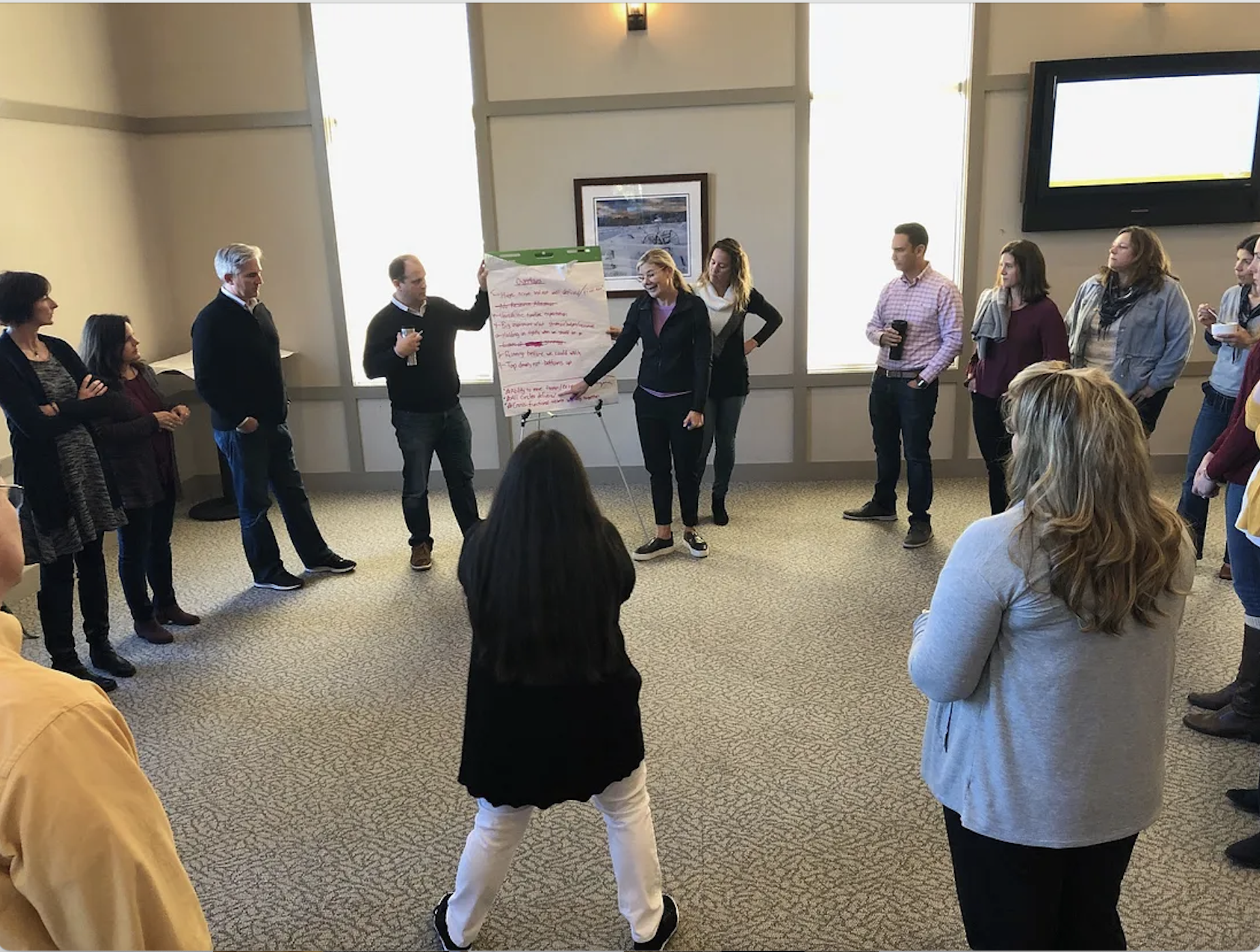Failure’s Not the Worst Thing that Can Happen. Hiding from It Might Be
Learning from flops builds courage and trust with you team.
A while back, I wrote about how an old company of mine celebrated success with impromptu dinners featuring good wine and food. The gist was that it’s too easy for fast-growing companies to blow off their successes. We wanted to recognize that our mission was a marathon, not a sprint, so we made “fun” one of our core values in order that we could enjoy the journey along the way.
As a part of our last quarterly leadership meeting, held in the Tap Room and Carriage House in Bedford, NH, we tested a new feature in our corporate culture: celebrating failure. Rather than sign a bottle of Dom Perignon for the team leader, we awarded a gallon of organic apple cider vinegar to the entire leadership team for that quarter’s greatest flop.
Much like a failure, itself, vinegar doesn’t taste very good to drink, but it offers excellent value to those who know how to use it.
The Dom Perignon of failure?
So, how did we “use” failure to improve ourselves?
We didn’t want so much to “learn from our failures” in the tried and true sense of avoiding it in the future. Instead, we celebrated failure so we could all search for a way to take “credit” for it — to see where we might have pushed back, spoken up, listened a little harder, trusted one another a bit more, and acted more bravely when the moment called for it.
Yes, some of us were “closer” to the failed project than others, but the more we talked through it, the more accountability for the failure became a shared thing around the room rather than a reason to point fingers at our colleagues.
This wasn’t the easiest thing for the staff to do. As a CEO, I had to give “permission” for everybody to step up and take some blame. I did this by standing up and talking about failure as a valuable outcome of a mindset that acts with courage or, to use a company value, “responsible urgency.” I also admitted up front that I’d pushed way too hard on the project, failing to account for the impact my impatience, and ultimately exasperation would have on the team. Predictably, they interpreted my frustration as a threat and dobled down on an implementation process that should have been scuttled.
I wanted us to focus on the underlying dynamic, which involved fear and mistrust: the lead thought I wouldn’t understand why his project wasn’t working, and I thought his team probably weren’t doing all they could to get it done. After I put the kibosh on the project, he and his team were left to carry the feeling of failure around for months. They needed to release all of this pent-up emotion. They needed to move on.
And at the banquet room at Murphy’s, that’s exactly what we did.
Mini Case Study: Replacing Our Legacy Phone System
As the talented (and funny) IT manager at the company, Dave Croley was the team leader for replacing a legacy phone system that was on the fritz and wasn’t being supported by the vendor. We piloted another vendor that included a remote, virtual meetings feature, which we used with great frequency.
Here are Dave’s takeaways in his own words.
1. Don’t pilot your project with your executive team: No matter how savvy they say they are! Within three days of installing the system, the executive team wanted to use it for a meeting. When it failed a second time with them, things went downhill fast. For future pilots, I’ve put together a beta group of volunteers, and nobody gets to use it until they say so.
2. Apply pushback when needed: I should have pushed back when the executive team asked for it in three days. Then, I should have pushed back after it became obvious that the system’s flaws couldn’t be chalked up to “user error.”
3. Move on: It feels good to put this one behind us. Next time, we’ll put it behind us a lot faster, if that’s the right thing to do.
And that last lesson is the one I want to leave you with: celebrating failure offers two benefits to an organization. First, it builds courage and accountability for everybody; second, it brings the failure to the surface earlier than would be the case with everyone walking around in denial. I can’t wait until our next quarterly meeting to see where we might fail next..
Sincerely,
Rob Craven, scalepassion
Enjoy this article? If you would like to see simple, practical tips in your inbox every week sign up for TwoTip Tuesday to help scale your change-the-world business.
All credit to my ghostwriting partner, Dave Moore, who is instrumental in getting my thoughts out in a coherent manner & into these blogs. Thanks Dave!



